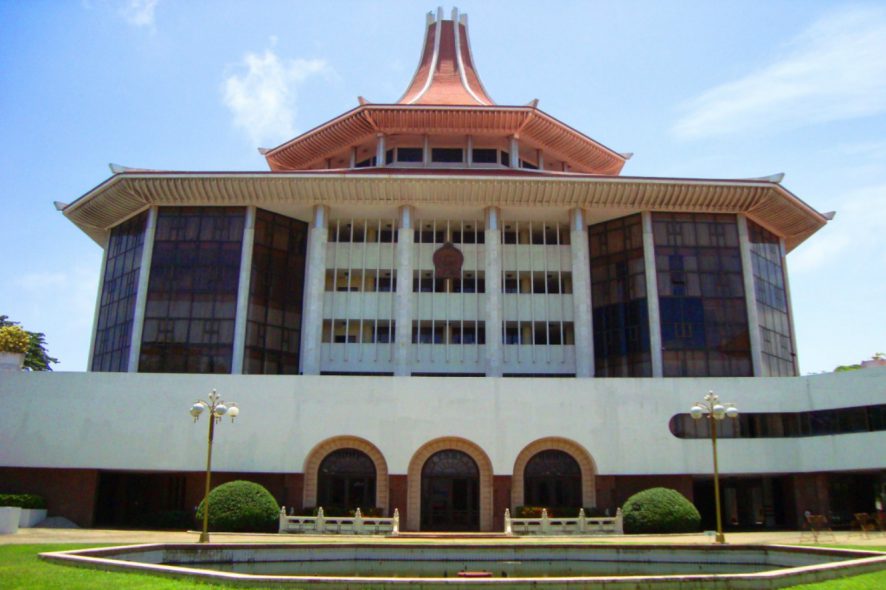Court of Appeal of the Democratic Socialist Republic of Sri Lanka: The Division Bench of K Priyantha Fernando and Sampath B Abayakoon, JJ., allowed the appeal against the conviction order of the High Court of Chilaw for Rape under Section 364(1) of the Penal Code and held appellant guilty of the offence of Grave Sexual Abuse on the PW1, punishable in terms of Section 365B (2)(a) of the Penal Code.
In the case, the victim had accused the appellant for sexual assault and subsequent threats from the appellant to her and her mother. The incident happened at victim’s place of residence where the appellant was consuming alcohol in the sitting area while the victim came out after taking a bath, and on scuffle between the two, the victim fell unconscious. On regaining conscious, the victim felt dizzy and also pain in the genital area, to which the doctor said that she was no longer a virgin. Post the incident; the appellant filed a complaint for sexual assault and harassment to the police station.
The Counsel for the appellant argued the victim complained to the police three weeks after the incident affecting her credibility. Further, the counsel submitted that the complaint to the police station was about assaulting the mother, but not on rape.
The counsel for the respondent put forth that taking the social stigma and vulnerable position of Victim PW1 in mind, the delay cannot affect the testimonial trustworthiness of the victim PW1. The Court set aside the conviction of the appellant for rape stating the lack of any direct or circumstantial evidence of penile penetration, the fact senior state counsel conceded to however request the court to convict the appellant for a lesser offence of Grave Sexual Abuse.
The Counsel for the appellant contended that the offence of Grave Sexual Abuse is not a cognate offence to the offence of rape and therefore the appellant cannot be convicted for Grave Sexual Abuse as he was not charged for the same.
Further, The Counsel for the appellant relied upon the case of Mohamed Aboobakar Ibrahim v. Hon. Attorney General, CA 191/2002 decided on 12.08.2016 to contend that the ingredients of the offences of Grave Sexual Abuse and Rape were distinguished from each other and are different and do not contain similar ingredients and therefore Grave Sexual Abuse cannot be considered as a lesser offence of Rape.
The Court read Section 177 with Section 176 of the Code of Criminal Procedure Act, in light of the case of King v. Piyasena, [1942] 44 NLR 58 and highlighted that:
“…The answer to the question raised seems to me to depend on the interpretation of sections 181 and 182 of the Criminal Procedure Code. Section 182 is the only relevant section, in the circumstances of this case, that can be advanced, as enabling a Court, when an accused is charged with one offence, to convict him of another offence, although he was not specifically charged with it, if it appears from the evidence that he might have been charged with it. But the scope of this section is expressly limited to “the case mentioned in the preceding section”. … “…The illustration appended to this section shows that the different offences contemplated are cognate offences, and it is doubtful which of these acts or series of acts may, ultimately, be found to constitute. This section, however, postulates a case in which a doubt arises from the nature of the fact or series of facts and not from a failure to appreciate the value of unambiguous facts or from an inaccurate view of the position in law arising from those facts. …”
Judgment of the court:
The Court observed that the prosecution had proved beyond reasonable doubt that there had been penetration into the vagina. Medical evidence has confirmed the penetration. The insertion of any other part of the human body or an instrument to the vagina will constitute the offence of Grave Sexual Abuse as defined in Section 365B of the Penal Code. Hence, when the charges were framed there had been a clear doubt as to which offence was committed, Rape or Grave Sexual Abuse, as the PW1 was unconscious when the penetration happened. Thus in terms of Section 176 of the Code of Criminal Procedure Act the prosecution was entitled to indict him either for Rape and alternatively Grave Sexual Abuse or for one of the offences.
Further, the court noted that Rape and Grave Sexual Abuse come under the same class of sexual offences and also defined in the same chapter of offences affecting the human body, Chapter XVI of the Penal Code.[Withanapathiranalage Dickshon Nihal Appuhamy v. Hon. Attorney General, Court of Appeal Case No. HCC/0289 of 2019, decided on 17-12-21]
Suchita Shukla, Editorial Assistant has reported this brief.
COUNSEL :
For Appellant: Duminda De Alwis and Charuni De Alwis for the Accused -Appellant
For Respondent: Janaka Bandara for respondent






